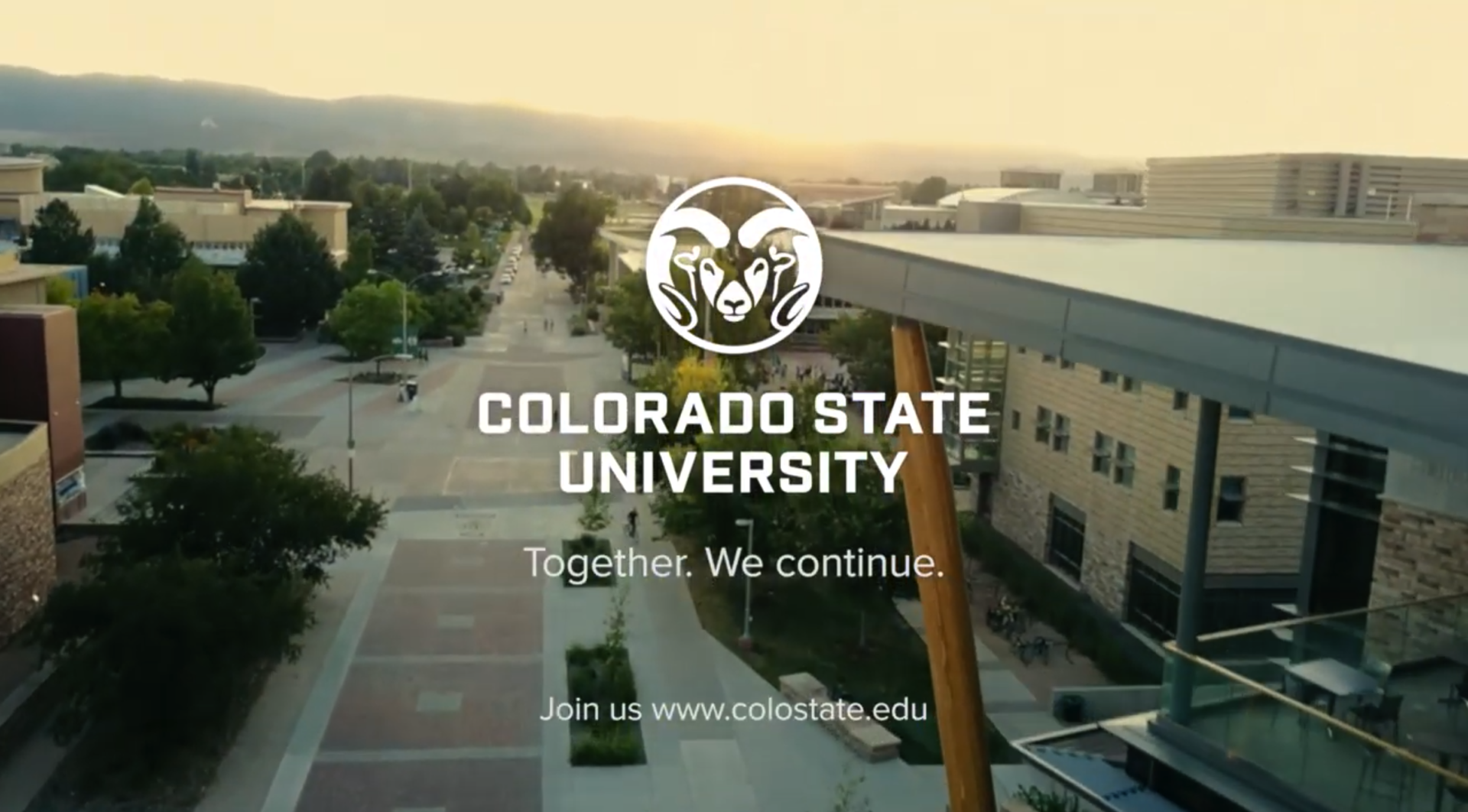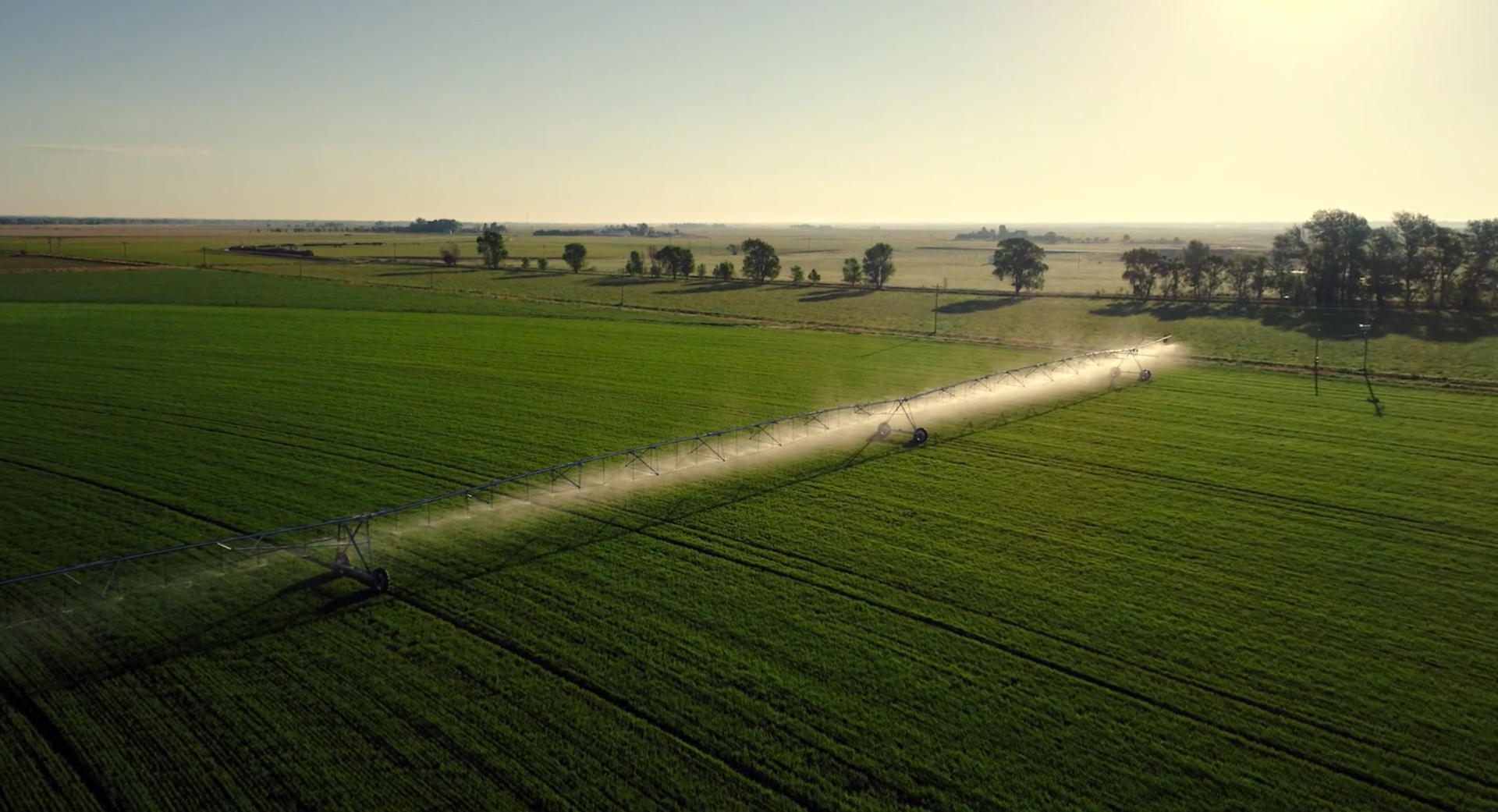This isn’t the first time Colorado State University has been faced with overcoming significant adversity linked to events on a global scale in its 150 years.
There was the pandemic of 1918, when flu prompted Colorado’s governor to prohibit public and private gatherings, and the CSU campus was closed for nearly a month. Fifteen students and one faculty member died.
There was the flood of 1997, when buildings suffered severe damage, and the campus rallied to get ready for the start of classes just a few weeks later.
There was the Great Recession in 2009, when CSU’s new president Tony Frank provided steady leadership while CSU lost about one-third of its state funding. Provost and Executive Vice President Rick Miranda remembers Frank looking out the window at the Oval that spring during a meeting to plan the University’s 140th birthday.
“He pointed to the emerging greenery, and reminded us all that our jobs were to make sure that CSU would continue to thrive and be a great land-grant university on our 150th birthday, and for the next 140 years after this,” Miranda wrote in a 2019 tribute to Frank. “We would get through this crisis – indeed, that was our job, and we were going to do our job.”

‘Ethic of care’
The day of the 1997 flood, July 28, was Vice President for Enrollment and Access Leslie Taylor’s first day in Fort Collins.
“I remember thinking how remarkable it was, when the campus was able to pull together and take care of community members who had been so devastatingly impacted,” she recalls. “I’m seeing that same sort of ethic of care again this year.”
In that spirit, university leadership has settled on a phrase that encapsulates CSU’s ability to overcome adversity once more in 2020: “Together. We continue.”
“Our innovativeness, our perseverance, and our determination to roll up our sleeves and get things done is going to make us stronger and able to deliver on the land-grant mission,” CSU President Joyce McConnell says. “I think the most important thing is that we continue to give our students opportunity by offering them an excellent education that will prepare them to enter a world that has been rocked by the disruptive change of this pandemic. Many refer to land-grant universities as ‘the people’s universities’ because they were meant to provide opportunity to those who otherwise would not have had access to higher education. We have delivered on that promise for 150 years, and we will continue to do so.”

Impacts on students and families
“Together. We continue.” For Taylor’s division, that has meant preserving access by rolling back application and other deadlines for incoming students in the fall, moving visitation and orientation programs online, and hosting informational webinars for students and their families. A host of virtual experiences are available.
“We have relaxed all of our deadlines, whether it’s admissions, deposits, final high school transcripts, ACT/SAT scores — everything has been pushed back to August,” Taylor says. “Basically, anything you can think of, we’ve tried to be thoughtful and considerate of what the impacts have been on students and families. Incoming students can still talk to their admissions counselor, current students and people in their academic department, or join our Schools App to meet other students in their class.”
“Together. We continue.” It now graces the front of CSU’s home page, along with a link to COVID-19 admissions updates.
“It refers to our community spirit and historical perseverance, but with a forward-looking perspective,” says CSU Executive Creative Director Todd Fedell. “We’ve been doing this for generations, across two centuries, and we will continue fulfilling our mission.”
Members of the extended CSU community will see the message on other campus communication channels, including social media.
“We want students and their families to know that we’ve been here for 150 years, and we’ll be here for 150 more,” Taylor says. “We’ve always been a campus that thinks of itself as a Ramily, and it’s during the most difficult times when families need to pull together and help each other. I see that happening on our campus. We’ll continue together, just like we always have. We intend to be back on campus in the fall, but will prepare for what the future might bring.”

Meeting community needs
As an example of CSU’s ability to quickly adapt to changing circumstances, McConnell points to CSU Extension and its Master Gardener program, which has responded to concerns about food supplies by pivoting its focus toward food production in individual gardens, much like the “victory gardens” of World War II. She also cites CSU’s earliest years, when our research identified what crops would grow in the arid Rocky Mountain climate, and what irrigation systems would be needed for agriculture in the region.
“CSU became the place that did the research, both in agriculture and engineering, then made sure that those innovations got translated to meet the people’s needs,” McConnell says. “That’s the model of the land-grant university, where innovations are being taken straight out to the people and helping improve lives. And that’s what I see during this pandemic, that our excellent education and cutting-edge research are being moved out at warp speed.”
McConnell adds that the theme of continuing, together, is nothing new to Colorado State University.
“When you look at the history of CSU, what you see is a tremendous educational community that cares very deeply about the work it does and the impact it has on the world,” she explains. “You can go back 150 years and see that sense of pulling together to meet the world’s challenges, and you can see that in 2020, in the face of this pandemic. You can see that joining together, linking arms, and moving forward together puts us in a stronger position.”
As it did in 1918, 1997 and 2009, CSU is finding new ways to uphold its land-grant mission of ensuring that people benefit from its innovative research and excellent education.
“When students receive their diplomas, they are not only improving their own lives, they’re improving their families’ lives, for generations,” McConnell says. “I think this diverse community of brilliant minds and great hearts makes us unstoppable in the face of challenges like this pandemic. The spirit of the students, faculty and staff at CSU reflects their overwhelming commitment to the land-grant mission, and we couldn’t fulfill that mission without them.”